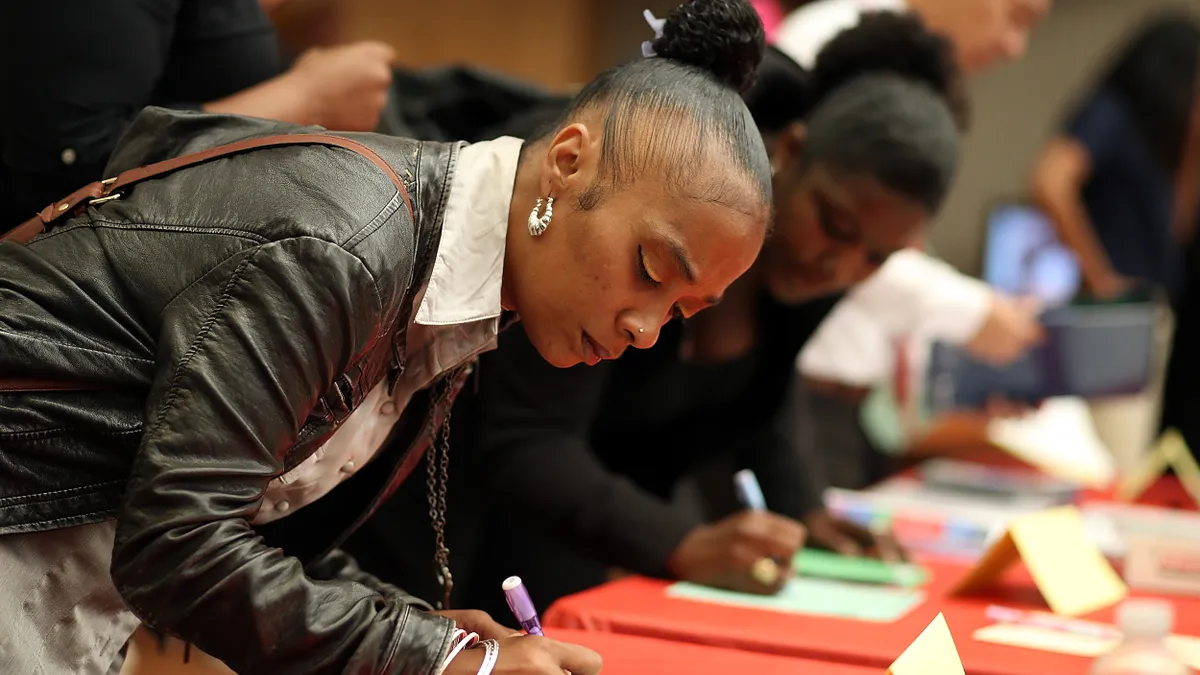It’s fall college recruitment season again — and now employers are meeting students who have learned to operate both virtually and in-person.
And while some students may prefer to connect with potential employers online, college campus events are back in a big way. Here’s what recruiters need to know.
In-person events make a comeback
Instead of being entirely in person or entirely online, employers are mixing up their recruitment strategies.
“It is much more of a hybrid strategy these days,” said Christine Cruzvergara, career expert and chief education strategy officer at Handshake. Recruiters are “really trying to fine-tune what is the right mix for their organization for the types of roles that they’re recruiting for.”
And while virtual recruiting of college students will probably never go away, in-person events on college campuses have been in demand. That’s especially true at HBCUs, Cruzvergara said, citing North Carolina Agricultural and Technical State University. The school held an in-person career fair in September, and over 400 employers and 7,224 students attended — among the highest numbers she’s seen for such a fair, she said.
While students are comfortable with living in an online world, especially this current crop who most likely did all or part of their high school or college work virtually during the worst of the pandemic, many are craving that in-person experience, said Julia Toothacre, chief career strategist at Resume Templates.
“There’s something about employers coming into campus and being able to speak to them,” she said. “There is this need and want to have that in-person interaction” for some students, she added.
Pre- and post-event work can make a difference
To boost their chances of having successful in-person events, recruiters can identify students they want to speak to in advance.
“You should be proactively looking up the types and groups of students that you’re looking for,” said Cruzvergara. Maybe that’s a particular major, student organization participant, or skill set. Recruiters can then reach out to those students before the event, sending a personalized message asking to meet them there.
Then be ready to make your company shine. “When they come in person, it’s really critical to be ready to talk about some of the things that are most important to this generation,” Cruzvergara said, which includes the company’s stability and benefits, particularly any student loan repayment benefits an employer may offer.
After the event, follow up, preferably within 24 to 48 hours “at least to let them know you were really interested to talk to them,” she added.
If a recruiter finds someone they think is a good candidate in person, but maybe not on paper, work with them, said Toothacre, especially since these students may not have the same kind of experiences or skills as generations before them due to the pandemic. “Employers need to remember that they are still learning and a lot of them are very green, and they need that guidance,” she said.
Employers can also offer them advice and resources on how to get that resume in shape, like directing them to their college career center, which can guide them on articulating their accomplishments. Recruiters should “really encourage them versus putting them in the ‘no’ pile because their resume doesn’t say what you want it to say,” Toothacre added. “They’re students. They have so much potential. Let’s try to look at some of that alongside some of the experiences they’ve had.”













